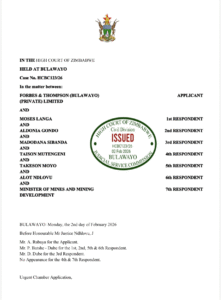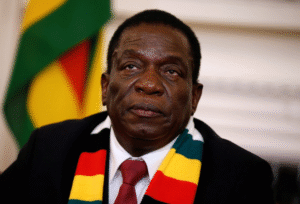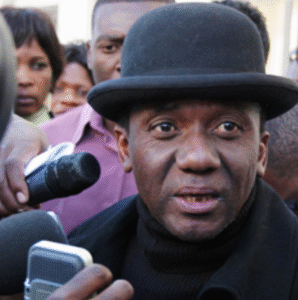ZIMBABWE’S DEMOCRACY IN PERIL: CITIZENS’ COALITION FOR CHANGE BARRED FROM BY-ELECTIONS

In a significant blow to the democratic process in Zimbabwe, the Citizens’ Coalition for Change (CCC), led by Nelson Chamisa, has been barred from contesting in recent by-elections, marking a worrying escalation in political suppression. Orchestrated by Sengezo Tshabangu, the CCC’s interim secretary-general, this ban unveils the deep-seated capture of judicial and oversight institutions such as Parliament, casting a long shadow over the nation’s governance and its democratic integrity.
The move to disqualify CCC candidates from the electoral fray has sparked fears of civil disobedience and unrest among Zimbabweans, who have seen their hopes for a democratic and fair political process dashed. This development is particularly disheartening given the formidable opposition the CCC had mounted against the ruling Zanu PF party in the elections held on the 23rd and 24th of August. Despite facing well-resourced opponents, CCC candidates like Pashor Sibanda in Bulawayo’s Cowdray Park and Munyaradzi Kufahakutizwi in Mabvuku-Tafara emerged victorious, challenging the notion that financial might guarantees electoral success. However, this victory was short-lived as subsequent court rulings favored Zanu PF by disqualifying popular CCC candidates such as Kufahakutizwi and Sibanda, showcasing a judicial bias that tilts the political playing field in favor of the ruling party.
The orchestrated ban on CCC’s participation is perceived by many as a strategic move by President Emmerson Mnangagwa to consolidate power and steer Zimbabwe towards becoming a one-party state, undermining the significant opposition support garnered in the August elections. This blatant disregard for democratic norms and principles has disillusioned many Zimbabweans, drawing parallels with the autocratic tactics employed by the late Robert Mugabe.
Prominent experts and analysts, including Ibbo Mandaza and Stephen Chan, have expressed grave concerns over Zimbabwe’s political trajectory under these developments. Chan, in particular, has advocated for a more radical stance from CCC in response to the political machinations that threaten to erode the country’s democratic fabric. Political analyst Rashweat Mukundu has emphasized the necessity for CCC to reconsider its participation in Parliament and councils, given the evident political capture of state institutions that renders genuine political engagement and reform a Sisyphean task.
This new low in Zimbabwean politics not only threatens the democratic fabric of the nation but also sets the stage for a more fractured and volatile political landscape. The barring of the CCC from the by-elections is a stark reminder of the challenges facing democratic movements in Zimbabwe, underscoring the urgent need for a concerted effort to restore democratic principles and ensure the integrity of the political process. As Zimbabwe stands at this critical juncture, the international community and democratic forces within the country are called upon to rally in support of fairness, justice, and democracy, to prevent the further erosion of these values in a land already too familiar with political strife and turmoil.





